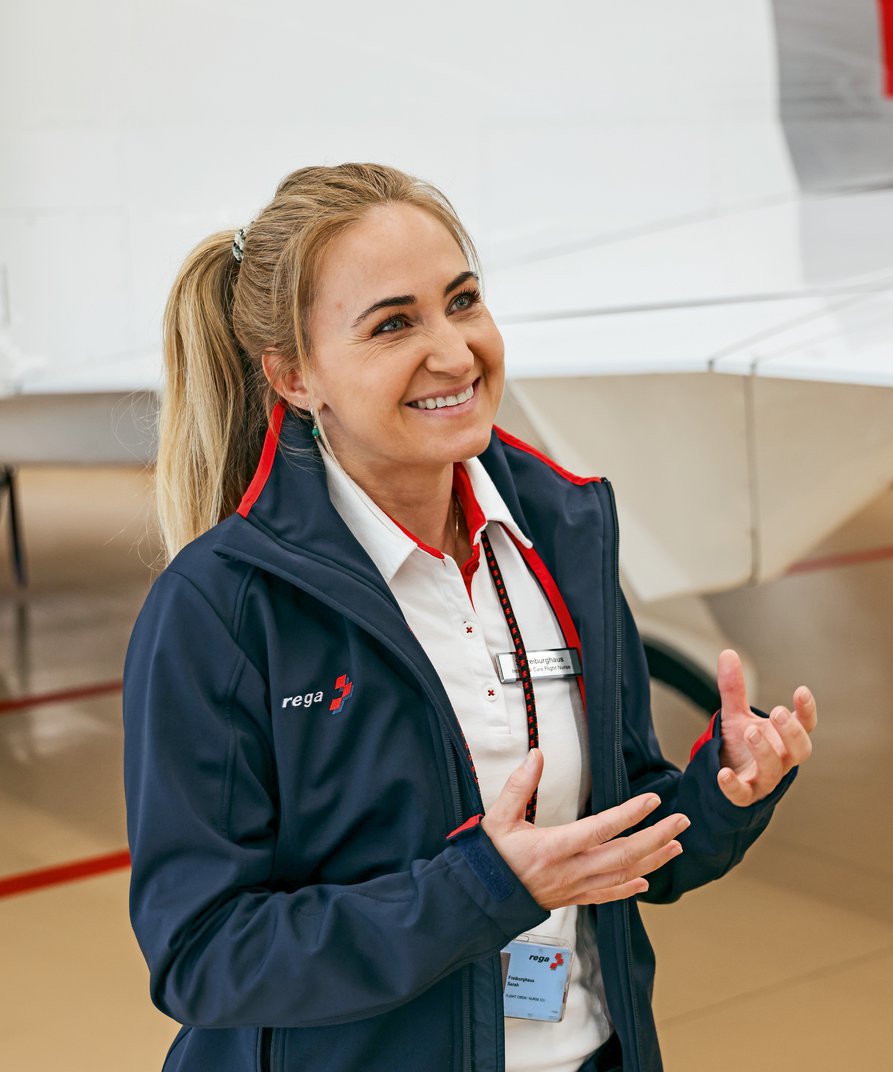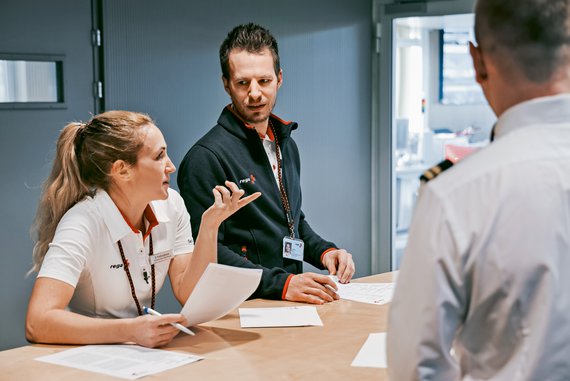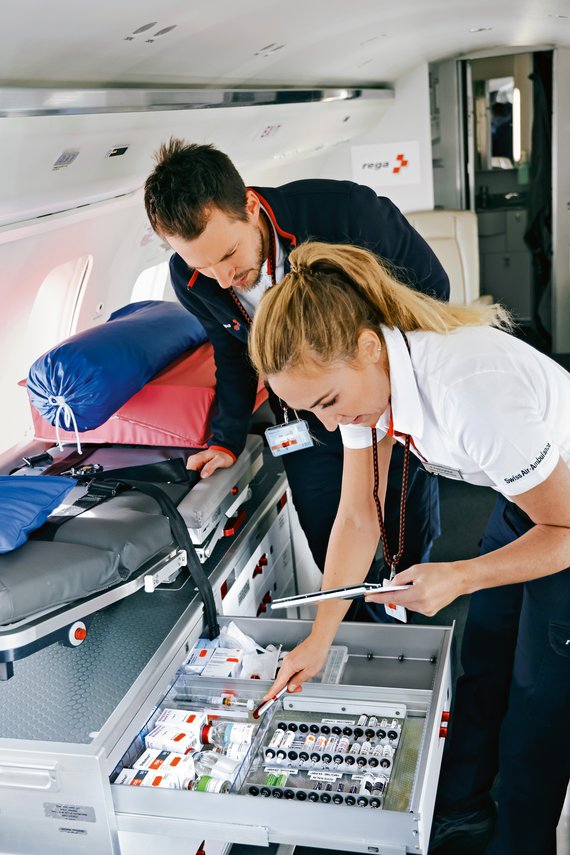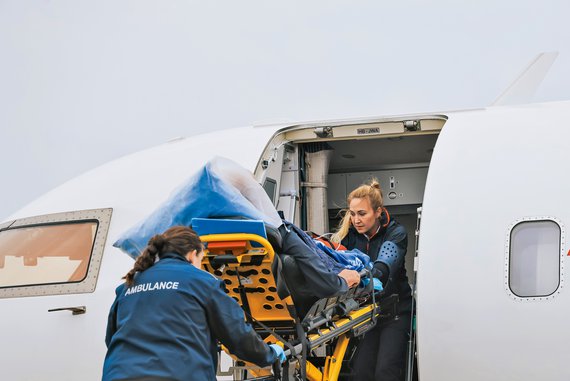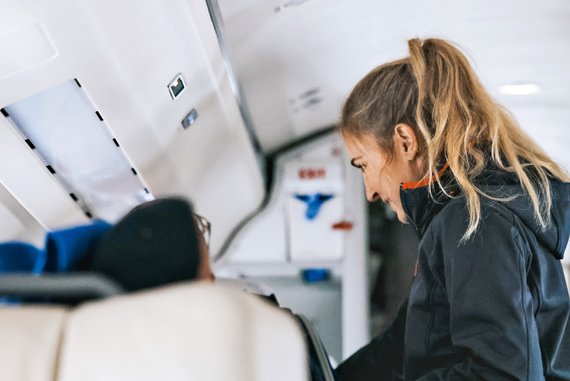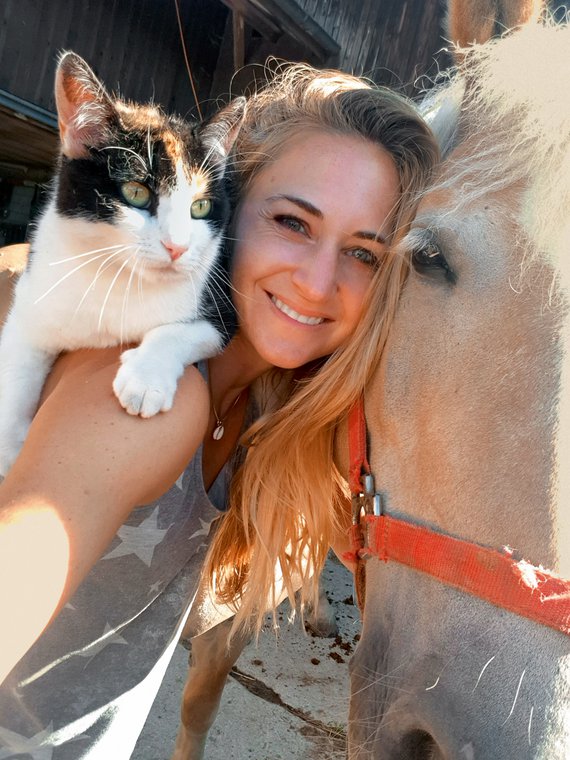No mission can be planned down to the very last detail. For Sarah Freiburghaus, this is one of the reasons why she enjoys her job as an intensive care flight nurse at Rega so much. With all jet missions, it is important to constantly consider all the possible scenarios, she says – even before the ambulance jet takes off. Such as when she is preparing the medical supplies and equipment at the Rega Center for a forthcoming repatriation, for example. The medical dossier on the patients that the medical consultants at the Operations Center have prepared during the preliminary clarifications helps her with this. “Our flight coordinators and medical consultants do an excellent job leading up to a mission,” she says. “Nevertheless, as crew members, on location we sometimes have to improvise in order to find the best possible solutions for our patients.” For example, if a patient’s condition suddenly deteriorates during the flight.
Moments like these put the skills of the medical crew in the ambulance jet to the test: “In the air, the flight physician and I are left to our own devices,” explains the flight nurse. As a result, her many years of working in various intensive care units have proved invaluable in her everyday life at Rega. “Experience is a great help when it comes to reacting correctly in unforeseen situations,” she says. Sarah Freiburghaus, who trained as an intensive care specialist after completing her nursing training, continues to work part-time at the University Hospital Zurich. The medical care of patients is one element of her responsibilities. Another is providing care at a human level. “Patients and their relatives find themselves in an exceptional situation. It is therefore essential that we also support them on a psychological level and are there for them,” she explains.
Whether on a medical or interpersonal level, Sarah Freiburghaus enjoys working with patients and their relatives. In most cases, she leaves the hangar at the Rega Center after a mission with a good feeling: “The knowledge that we were able to fly someone home safely after a terrible experience is really rewarding.”
